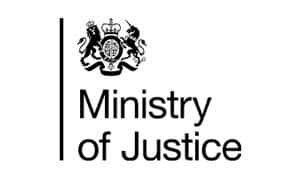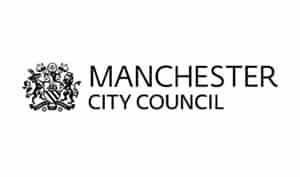Image Based Sexual Abuse (IBSA)
“Online violence against women and girls is part of the continuum of violence against women and girls. We must acknowledge its existence and fight against it, because its effects on women – from psychological to economical – are far-reaching.”
European Women’s Lobby
What is intimate image abuse?
Taking or creating nude or sexual images or videos without consent, including making ‘fake’ nude or pornographic images and/or Sharing nude or sexual images or videos without consent and/or Threatening to take, share or create nude or sexual images or videos without consent. The intimate images can be shared in a multitude of ways including, in-person, through texts, emails and messages, on social media platforms, porn and escort sites and in group chats.
This crime can be committed by anyone and anyone can be a victim.
“However, statistics show that is predominantly boys and men who commit these intimate image abuse crimes, and women and girls tend to be the victims. IBSA is a gendered harm.”
In Clare McGlynn, et al., Shattering Lives and Myth: A report on Image based sexual abuse, Durham University, 2019
How is this different to other kinds of trauma?
In some cases, the content is shared to embarrass, humiliate or cause distress to a person after the breakdown of a relationship. But it’s not always about REVENGE: content can be shared as a way of financial extortion, or blackmail, sometimes known as ‘sextortion’, to expose someone who has a high profile status or to ‘out’ someone. We often see it as an element in wider cases of stalking, harassment or domestic abuse.
Harm to individuals
IBSA is a violation of mental and physical integrity, dignity and privacy
The consequences
The victim/survivor may suffer panic attacks and suicidal thoughts, severe emotional distress and anxiety, post-traumatic stress disorder, insomnia and more.
“You go through stages of painful self-blaming, you are disgusted at how you managed to allow this to happen to you and constantly beat yourself up by telling yourself how could you be so stupid.”
VOIC Victims of Image/Internet Crime https://voic.org.uk
To have explicit images that are deeply personal in the public domain is an emotionally traumatic and violating experience.
In our society girls and women are ‘conditioned’ to internalise the harm that is done to them, and therefore many do internalise deep feelings of guilt and shame.
Friends, family, national institutions like the police might be quick to victim-blame and victim-shame.
The effect on victims/survivors/experiencers is mostly pervasive and long-lasting, impacting all areas of their lives.
Image-based Sexual Abuse, Nicole Henry, Clare McGlynn et al 2021
The possible impact of IBSA
Everyone will see hear and know about the IBSA, including family
Having to go find all the images online and remove them, which at the moment is not always possible due to loopholes in the law
on education and emotional development for girls and women
professional costs – dismissed, leaving jobs or not hired due to IBSA,
experiencing real financial hardship
having to move
living in constant fear of physical violence due to personal details being published online
retreat from online social network platforms and public discourse
refrain from expressing their opinions and withdraw from social media
“IBSA has a serious, adverse consequences for their family, social, professional and sexual lives.”
Mary Ann Franks, The Fights Against Digital Abuse, 2015
The law
“Currently, there is no single criminal offence in England and Wales that governs the taking, making and sharing of intimate images without consent.”
“The non-consensual taking and sharing of intimate images can have
a significant and long-lasting impact on victims.
The harms they experience are serious and significant.”
Law Commission, Reforming the Law, 2021
The current project of bringing in a new law against IBSA is in the policy development stage since September 2021
https://www.lawcom.gov.uk/project/taking-making-and-sharing-intimate-images-without-consent/
Signposting and useful contacts
regarding image based sexual abuse (IBSA)
Help and Support
Greater Manchester Rape Crisis
https://www.manchesterrapecrisis.co.uk
- Helpline
- Counselling
- ISVA – independent sexual violence advice
VOIC Victims of Image/Internet Crime
Revenge Porn Helpline
https://revengepornhelpline.org.uk/information-and-advice/about-intimate-image-abuse/
Phone 0345 6000 459: Tuesday – Thursday 10 – 4pm
By email help@revengepornhelpline.org.uk
Anonymous contact form ‘Whisper’
Facebook messenger
Ban Revenge Porn – Email: banrevengeporn@gmail.com
Twitter: @banrevengeporn
Queen Mary Legal Advice Centre – Email: lac@qmul.ac.uk Twitter:@revengepornlaw
Info on Feminist internet security:
- https://gendersec.tacticaltech.org/
- https://iheartmob.org/
- https://feministesvscyberh.tumblr.com/ (in French)
- https://www.apc.org/en/pubs/icts-feminist-movement-
building-activist-toolkit
- https://securityinabox.org/en/
- https://hackblossom.org
- https://es.hackblossom.org/cybersecurity/ (in Spanish)
- http://chayn.co/ (Russian, Italian, English and French
language Guides to Internet security)
- https://www.codingrights.org (Portuguese, English,
Spanish)
- https://www.feministfrequency.com
- https://troll-busters.com/
- https://yoursosteam.wordpress.com/what-to-do-mobile- graphic/
Literature
Burstow B (2003) Toward a radical understanding of trauma and trauma work. Violence Against Women 9(11): 1293–1317
European Women’s Lobby (2017) #HerNetHerRights – Mapping the State of Online Violence against Women and Girls in Europe. Strasbourg: European Women’s Lobby.
Evans L (2016) My experience with revenge porn. Huffington Post, 5 April. Available at: https:// www.huffingtonpost.co.uk/lauren-evans2/revenge-porn_b_9610018.html (accessed 4 August 2020).
Franks Mary Ann, The Fights Against Digital Abuse: the view from the US, available at: http://www.womensaid.ie/16daysblog/2015/12/15/the-fight-against-digital-abuse-the-view-from-the/
Henry Nicola, Clare McGlynn, Asher Flynn, Kelly Johnson, Anastasia Powell, Adrian J. Scott, (2020), Image-based Sexual Abuse A Study on the Causes and Consequences of Non-consensual Nude or Sexual Imagery, Routledge
Herman Judith Lewis (1992) Trauma and Recovery. New York: Basic Books.
Huber Antoinette Raffaela, (2020), Women, Image based sexual abuse and the pursuit of justice, PhD thesis, http://researchonline.ljmu.ac.uk/id/eprint/12955/1/2020HuberPhD.pdf
Martin Jennifer (2014), “It’s just an image, right?”:Practitioners Understanding of child sexual abuse images online and effects on victims, Ryerson University,
https://www.researchgate.net/publication/264496022_It%27s_Just_an_Image_Right_Practitioners%27_Understanding_of_Child_Sexual_Abuse_Images_Online_and_Effects_on_Victims
McGlynn, C & Rackley, E (2017), ‘Image-based sexual abuse’, Oxford Journal of Legal Studies, vol. 37, no. 3, pp. 534–561. https://doi.org/10.1093/ojls/gqw033
McGlynn, C., Rackley, E., Johnson, K., Henry, N., Flynn, A., Powell, A., Gavey, N. and Scott, A. J. (2019). Shattering lives and myths: A report on image-based sexual abuse. Project Report. Durham: Durham University; University of Kent, https://dro.dur.ac.uk/28683/3/
Powell Anastasia & Nicola Henry, (2017), Sexual Violence in a Digital Age, Springer
Powell Anastasia Dr, Dr Adrian J. Scott, Dr Asher Flynn, Dr Nicola Henry, (2020), Image-Based Sexual Abuse: An International Study of Victims and Perpetrator https://www.researchgate.net/publication/339488012_Image-based_sexual_abuse_An_international_study_of_victims_and_perpetrators
Ringrose, J., Harvey, L., Gill, R., & Livingstone, S. (2013). Teen girls, sexual double standards and ‘sexting’: Gendered value in digital image exchange. Feminist Theory, 14(3): 305–323.
Salter Michael et al., (2013), Beyond Criminalisation and Responsibilisation: Sexting, Gender and Young People, https://www.researchgate.net/publication/294787817_Beyond_Criminalisation_and_Responsibilisation_Sexting_Gender_and_Young_People
Sharratt Elena (2019) Intimate image abuse in adults and under 18s
A comparative analysis of cases dealt with by the Revenge Porn Helpline and Professionals Online Safety Helpline
https://swgfl.org.uk/assets/documents/intimate-image-abuse-in-adults-and-under-18s.pdf
Stanley, N., Barter, C., Wood, M., Aghtaie, N., Larkins, C., Lanau, A. & Overlien, C. (2018). Pornography, sexual coercion and abuse and sexting in young people’s intimate relationships: A European study. Journal of Interpersonal Violence, 33(19), 2919-2944.
Vera-Gray, F. (2017b). Girlhood, agency, and embodied space for action. In B. Formark, H. Mulari & M. Voipio. (Ed.). Nordic Girlhoods: New perspectives and outlooks. Basingstoke: Palgrave MacMillian.
Vera-Gray Fiona (2020) The whole place self: reflecting on the original working practices of rape crisis. Journal of Gender-Based Violence 4(1): 59–72.
Wilson, M. (2001) “Black women and mental health: working towards inclusive mental health services,” Feminist Review 68: 34-51


